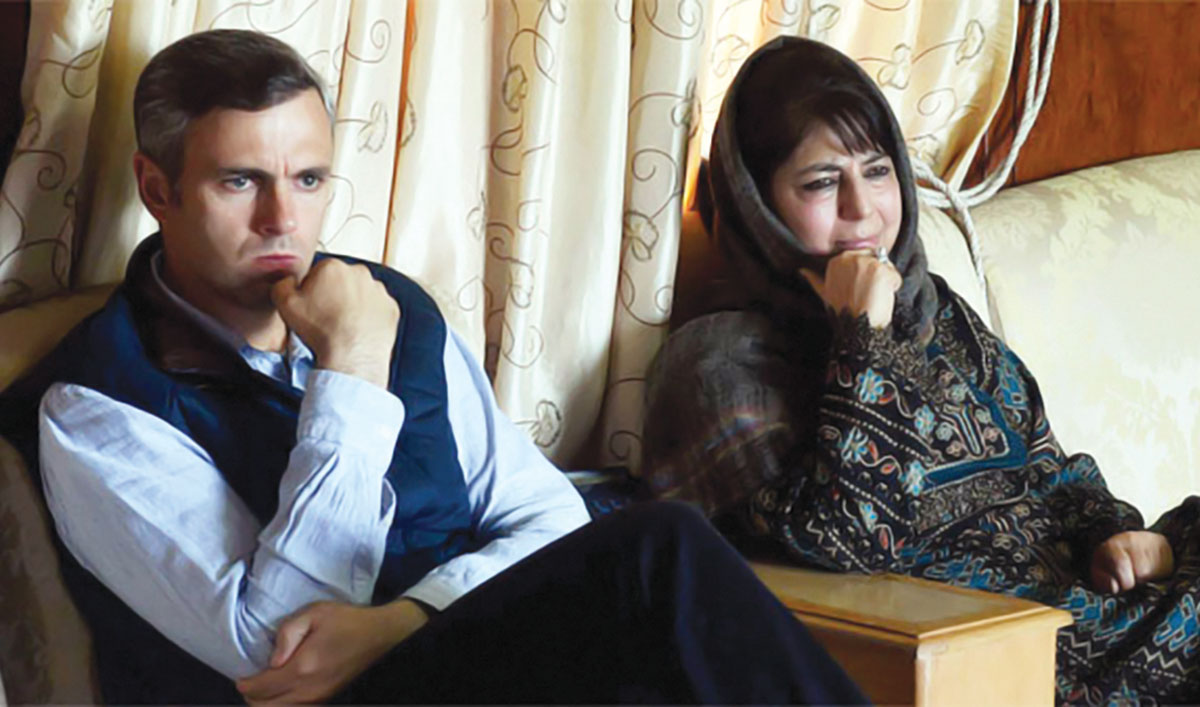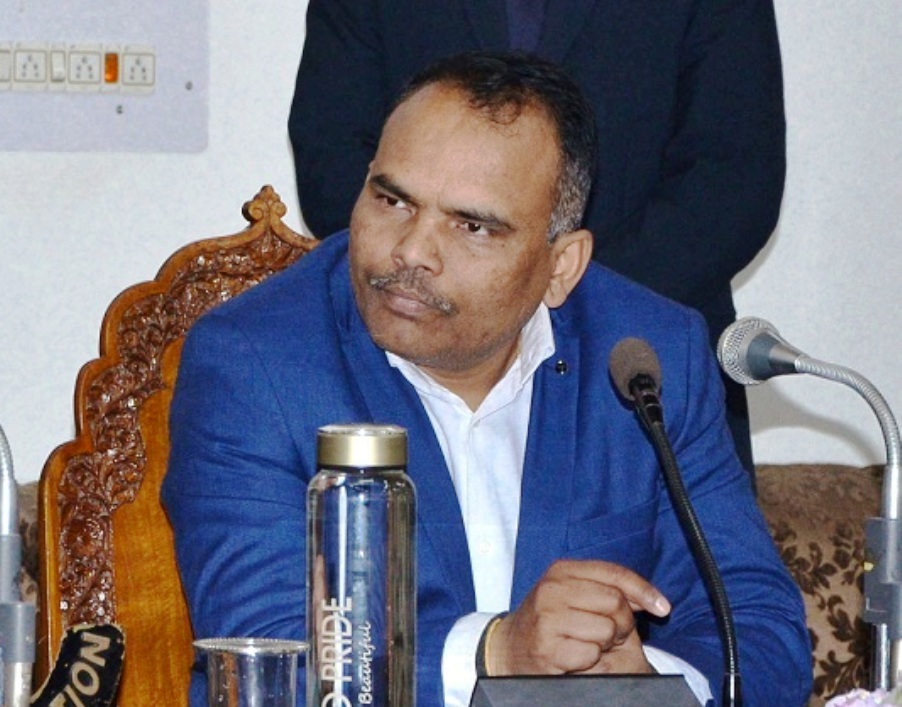LADAKH
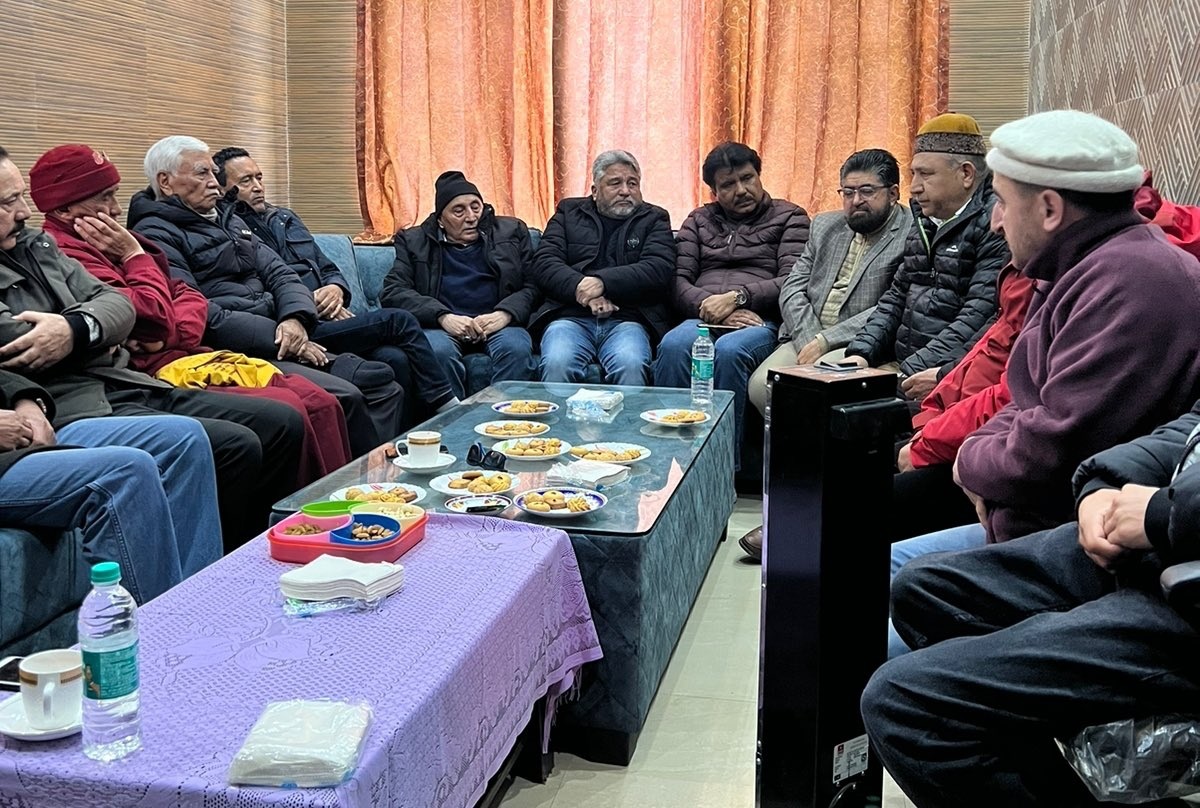
In the intricate political landscape of Ladakh, a chilling parallel emerges between the region’s temperature and its political dynamics. Just as the altitude dictates cooler climates, political temperatures rise with the emergence of conflicting interests. The recent developments reflect a reminiscent narrative of Kashmir’s political saga. The Ladakh desert, a frigid theatre of political manoeuvring, mirrors the Kashmir scenario, as the INDIA bloc faces analogous challenges. In a symbolic echo, parties within the bloc prepare to nominate divergent candidates from the twin districts of Kargil and Leh. The National Conference (NC)-Congress alliance proposes Haji Hanifa Jan in Kargil and Tsering Namgyal in Leh, indicative of internal rifts.
Silence from INDIA bloc leaders hints at internal discord amidst the emergent situation. The potential clash between constituents underscores a recurring theme from Kashmir, where NC and PDP engage in electoral combat. As the twin districts gear up for polls, the ramifications extend to regional alliances cultivated since 2020.
The discord finds resonance as Congress and NC jointly nominate Hanifa, triggering dissent within the Kashmir Democratic Alliance (KDC). Meanwhile, Congress asserts its autonomy by nominating Namgyal, defying the preconceived allocation within the INDIA bloc. In this high-altitude political arena, the BJP’s nomination of Tashi Gyalson adds another layer of complexity. Gyalson’s transition from PDP to BJP reflects the fluidity of alliances, further complicating an already intricate electoral landscape. Interestingly, Sajad Kargili, the runner-up in 2019 polls is also playing to throw his hat in the ring.
As many as 264 human deaths were caused by animals in Kashmir from 2006 to March 2024, with 3164 people sustaining injuries.
DELHI
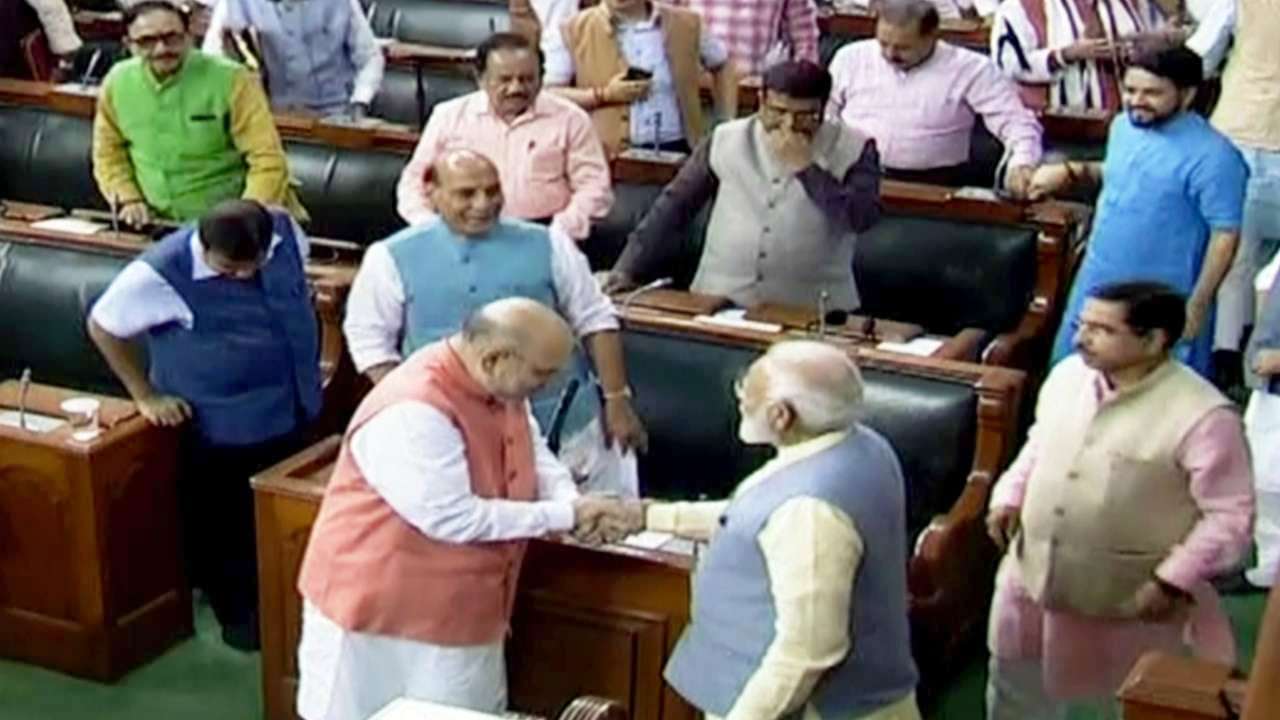
Kashmir is in wholesale use across India as part of the Lok Sabha campaign. One issue being talked about is the restoration of statehood to the state. When the Home Minister said it was being restored, Omar sought timelines. Amit Shah anticipated Jammu and Kashmir’s return to normalcy, attributing the shift to decreased violence and “burgeoning development”. He cites a significant influx of tourists, cultural events, and economic investments post-Article 370 abrogation as progress indicators. “Slowly, it will be a normal State,” Shah said in an interview. However, former CM Omar Abdullah urged Shah to articulate a definitive timeline for the reinstatement of Jammu and Kashmir’s statehood. Abdullah critiques the BJP-led NDA’s decision to revoke Article 370, advocating for statehood restoration before the Lok Sabha elections. He references the Supreme Court’s directive for assembly polls by September and calls for clarity on the timeframe for statehood reinstatement in alignment with the court’s mandate.
LCMA has submitted a 1000-page document offering suggestions on the flow of sewage and liquid waste into the Dal Lake and removing unauthorised constructions.
POONCH
Is this why BJP wants to defer the Anantnag – Rajouri election so that its leaders can openly threaten violence against Paharis to force them to vote for Apni party or else they will create communal tensions reminiscent of the 1947 partition? @ECISVEEP should take note & ensure… pic.twitter.com/VXZQs4Syll
— Mehbooba Mufti (@MehboobaMufti) April 30, 2024
The BJP took swift action by expelling party leader Satish Bhargav for delivering a “hate speech” during a campaign in Mendhar (Poonch), targeting Pahari leaders aligned with the PDP and National Conference. Bhargav’s remarks, made at the office of District Development Council member Wajid Bashir Tikoo, warned Pahari leaders to support BJP: “Remember, there will come many occasions and you may be given wounds like the ones we got during 1947, which we have not been able to forget so far.” This move by Bhargav, despite the BJP’s non-participation in Kashmir constituencies, led to his expulsion. The PDP has since approached the Election Commission on the matter. Mehbooba Mufti is seeking a case under UAPA against the hate monger.
Against an ambitious target of getting 50000 buildings under the Rooftop Solar Scheme in Jammu city, the achievement is less than 2000.
LANGATE
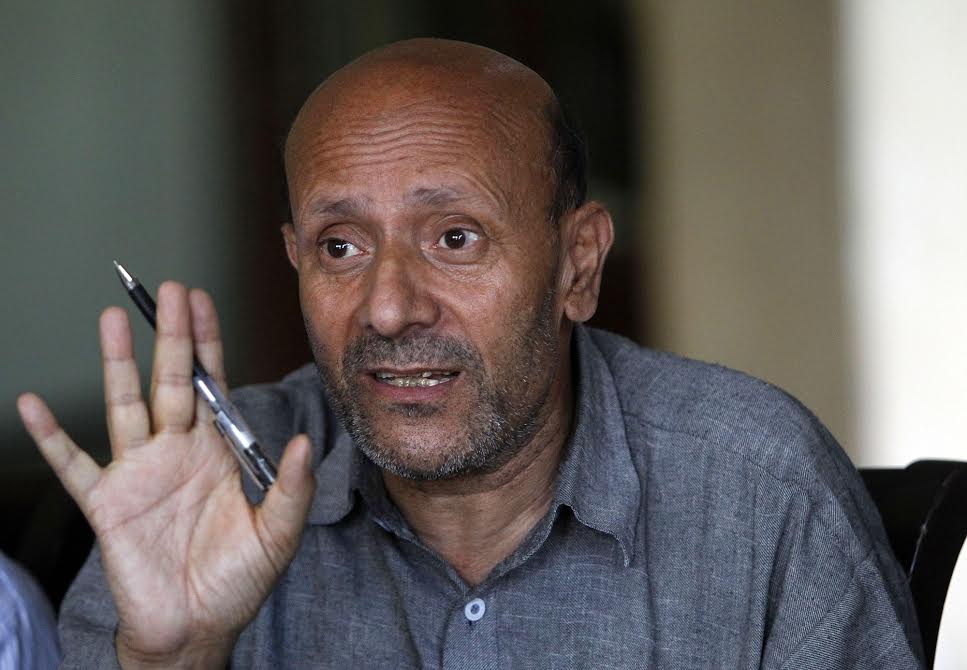
Sheikh Abdul Rasheed, aka Engineer Rashid, adds another dimension to the electoral contest in the Baramulla Lok Sabha constituency. His candidacy, amid other prominent contenders like Sajad Lone, Omar Abdullah and Fayaz Ahmad Mir, diversifies the race. However, Rasheed’s unique position as a jailed candidate presents both challenges and opportunities. Despite past electoral success and potential sympathy votes, his absence from the constituency and the political landscape’s transformation may hinder his prospects. Nonetheless, his political journey, marked by controversy and activism, underscores the complexity of Kashmir’s political terrain. As the election unfolds, the contest between Omar Abdullah and Sajad Lone takes centre stage, with alliances and party dynamics shaping the electoral landscape. Rasheed’s entry into the fray reflects the evolving nature of Kashmiri politics amidst shifting alliances and individual ambitions.
RAMBAN
A village on the road to Gool and overlooking the Ramban was erased by the massive land subsidence case, last week. The land started sinking by evening and for many days it did not stop. It pulled down houses and pushed them into each other as if a rash kid was playing with the pack of cards. A car was almost ‘eaten’ by its own parking space. Residents of Pernote said they had two saving – their own lives and their herds only because both knew how to flee. The rest was either destroyed or partially recovered. The village comprising almost 100 households has migrated and is living in transit camps. With the most precious possessions lost, they are now desperate to have land on which they could build their homes for which they would require financial help. The political class visited them but there is no decision so far. In past, various villages which were erased by the fragile Pir Panchal, are still fighting for rehabilitation.
JAMMU KASHMIR
Yet again, Kashmir survived a serious flood threat. As the incessant rains triggered massive discharge in the Jhelum and its tributaries, the levels moved up quickly. Two of the tributaries – Pohru (Kupwara) and Veshaw (Kulgam), surpassed the very dangerous levels. Unlike Kulgam, destruction was very visible in parts of north Kashmir where 606 families were relocated as their dwellings got inundated. Home apart, the floods devastated the rice plantations and a lot of road infrastructure. Even though the authorities had made Plan A, the rain gods had mercy and it started snowing. The levels went down gradually. There was no loss of life in Kashmir but Jammu lost five people including three minors.
UDHAMPUR
A Village Defence Guard (VDG) member was fatally wounded during a skirmish with suspected militants in a remote village of Basantgarh (Udhampur) forests. The incident marks the second killing in Jammu within eight days, highlighting the persistent challenge of militancy despite claims of normalcy. Mohammad Shareef, 48, from Lower Ponar, Basantgarh, sustained injuries during the encounter and later succumbed. He was part of a police operation targeting militants believed to have recently infiltrated from Pakistan. Despite the surge in militant activity in recent years, the Jammu region continues to grapple with security concerns, prompting reinforced efforts by authorities to combat the threat. Sharief’s widow expressed pride in his sacrifice but voiced concerns for her family’s future.
SONAMARG

India hosts four bear species: Himalayan Brown Bear, Asiatic Black Bear, Sloth Bear, and Sun Bear, all facing human conflicts. A study in Kashmir reveals threats beyond attacks and traps, including improper disposal of plastic and food like biryani by locals and tourists. Conducted by Wildlife SOS, in collaboration with Jammu and Kashmir’s Department of Wildlife Protection, the survey in Sonmarg emphasised Himalayan Brown Bear behaviour around garbage dumps. The research highlights a shift in bears’ feeding habits due to trash habituation, potentially altering their behaviour permanently. Encounters with Asiatic Black Bears have risen due to habitat fragmentation. Noise-making and defensive strategies are recommended for safety. Understanding threats is crucial for effective conservation efforts.
JAMMU

Amidst recent gang-related violence in Jammu, a startling revelation emerged as a criminal incarcerated in Kathua Jail was allegedly behind the recent firing incidents in Miran Sahib and RS Pura areas. Sleuths disclosed the information, implicating Arun Choudhary, alias Abbu Jaat, currently detained. The incidents targeted a sweet shop and a residence, inducing panic before the assailants vanished. Subsequent police investigations led to the identification and arrest of three suspects, who confessed their involvement. Notably, one of the suspects is a history sheeter, while another is linked to a previous rape case. The police are now delving into logistics and verifying a social media claim purportedly linked to the jailed criminal.
MUMBAI
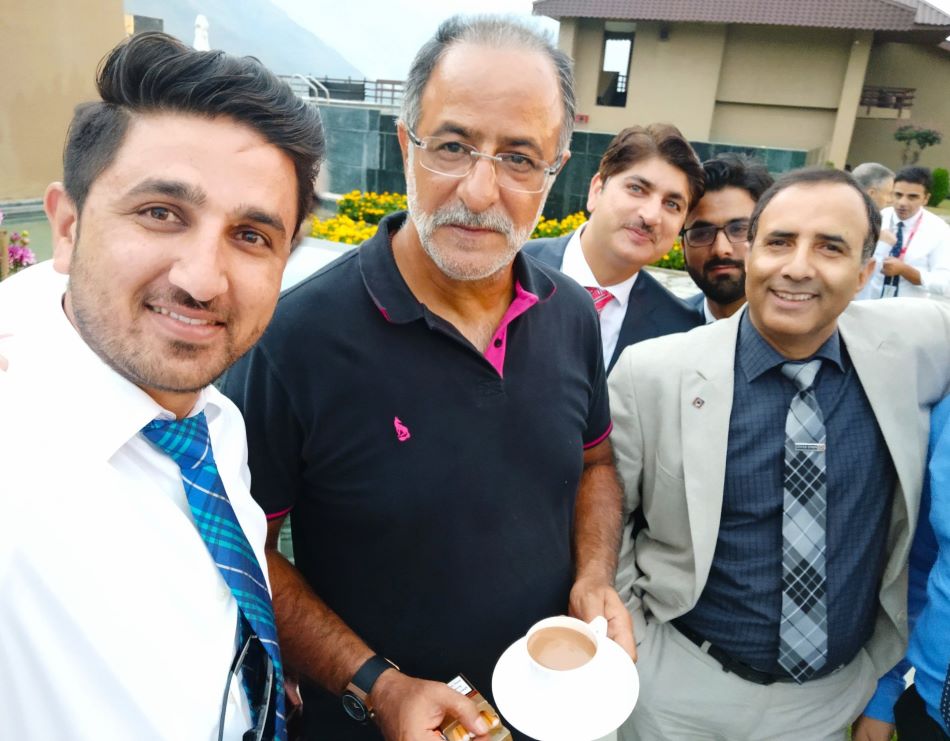
Abhay Aima, a prominent figure in the financial world, known for his unique insights and steadfast commitment to his Kashmiri identity, passed away recently, leaving behind a legacy of resilience and inclusivity. Aima’s remarkable career spanned various realms, from running a financial business to heading the wealth management division of HDFC Bank. Despite his success, he remained deeply rooted in his Kashmiri heritage, fluent in the language and passionate about preserving the cultural essence. Aima’s influence extended beyond finance, as he nurtured a love for Sufi music and mentored young artists, fostering a sense of community and belonging. His passing marks a loss not only in the financial sector but also in the cultural and social fabric he enriched throughout his life.
HANDWARA
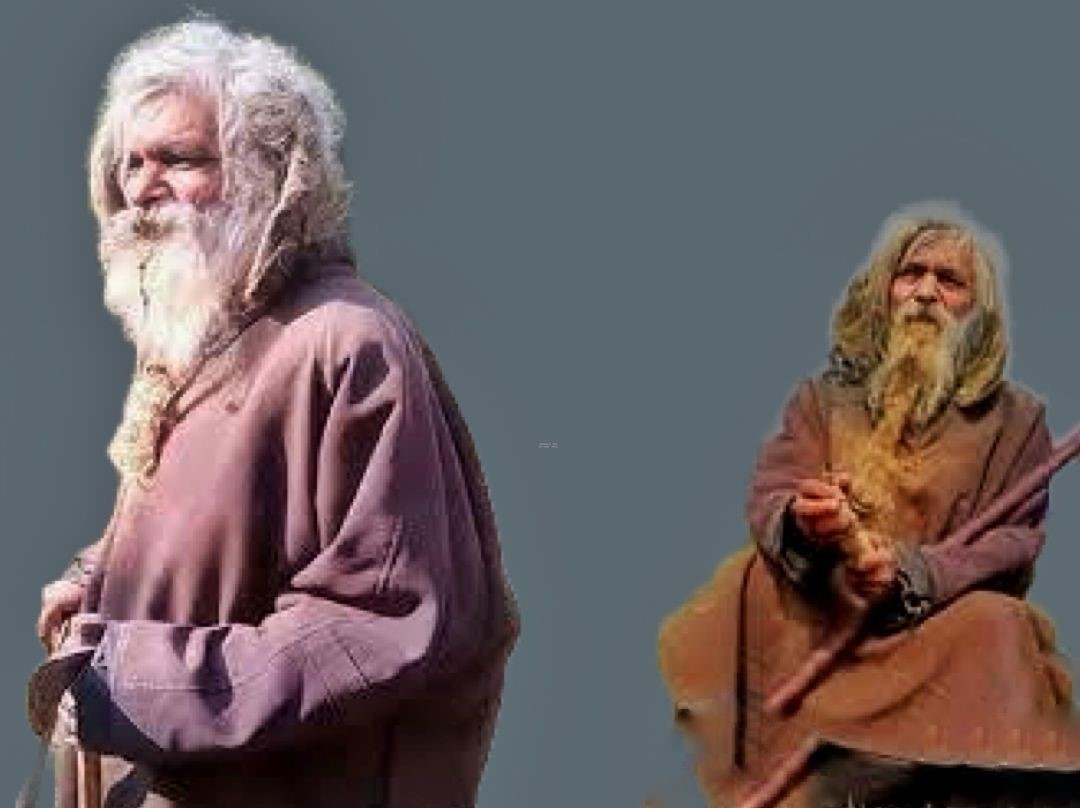
The recent tragic death of a 72-year-old woman in Kashmir has shed light on the disturbing practices surrounding a self-proclaimed faith healer known as Ghulam Rasool Sofi, or Las Bub. Sofi, who has been in a mentally compromised state for some time, gained a following in Maidan-e-Chogal village for his purported healing abilities. However, his methods involved violence, including beating his followers with a stick or even an axe. Despite warnings from locals and incidents of serious injuries, Sofi’s followers continued to visit him, believing in his supposed powers. The situation escalated when Sofi fatally struck Ateeqa, the victim, with an axe after she defied his warnings. Sofi’s influence extended beyond mere faith healing, with reports of him breaking valuable items and administering injections to his visitors. While some attribute his popularity to influential visitors, others point to Kashmir’s history of creating quasi-religious figures. This tragic incident underscores the need for greater awareness and intervention to protect vulnerable individuals from exploitation and harm.
SAMBA
The suicide of Rajesh Kumar, alias Sippy, prompted public outrage and calls for accountability after he implicated the Station House Officer (SHO) of Janipur Police Station, Jammu, in his suicide note and video. Kumar, with a history of theft cases, was relocated to Janipur Police Station, where he allegedly faced mistreatment. Despite assurances, Kumar took his own life the next day. In his video and note, he blamed the SHO for his despair, sparking protests demanding justice and employment for his family. Demonstrators enraged, staged protests until authorities intervened. Kumar’s last rites were conducted on April 27, concluding a tumultuous chapter, with an inquiry underway to uncover the circumstances.












